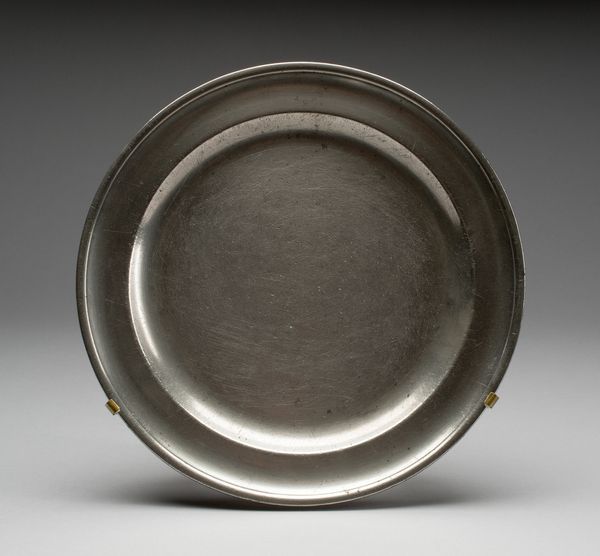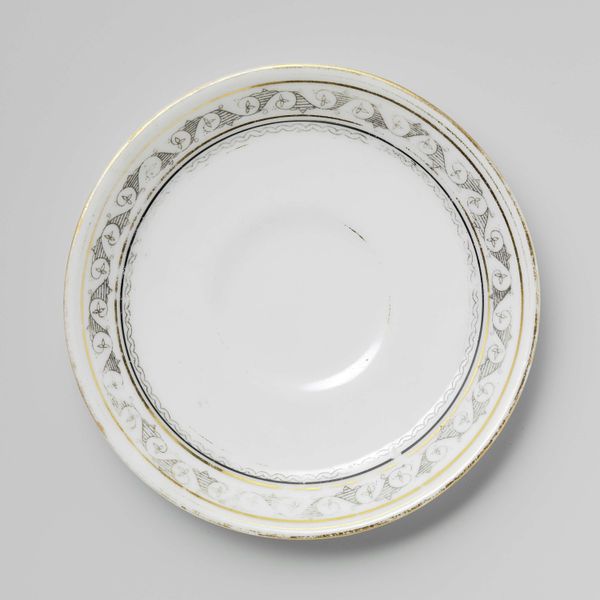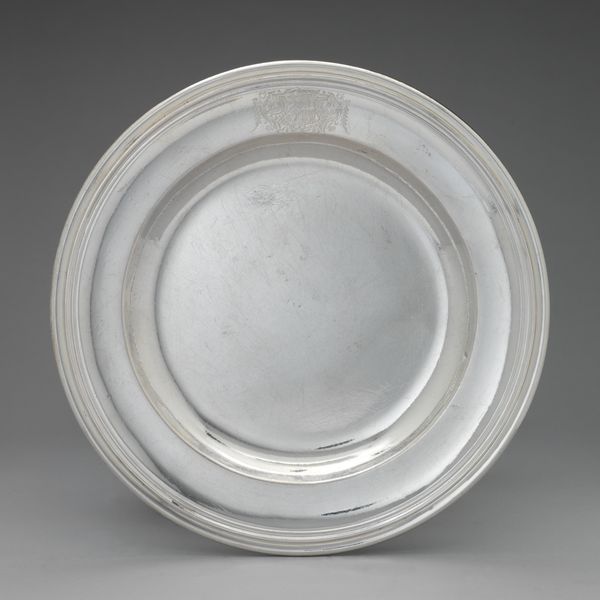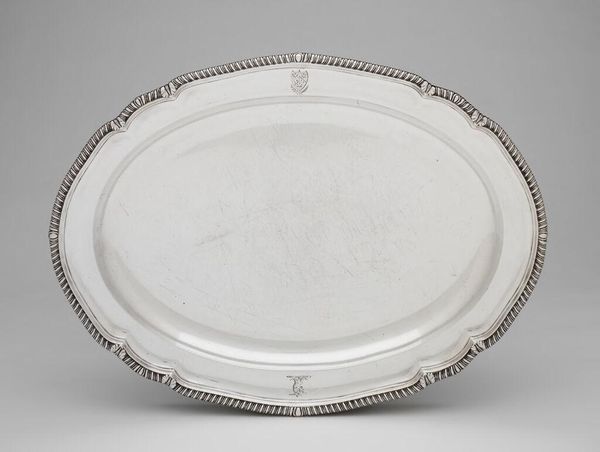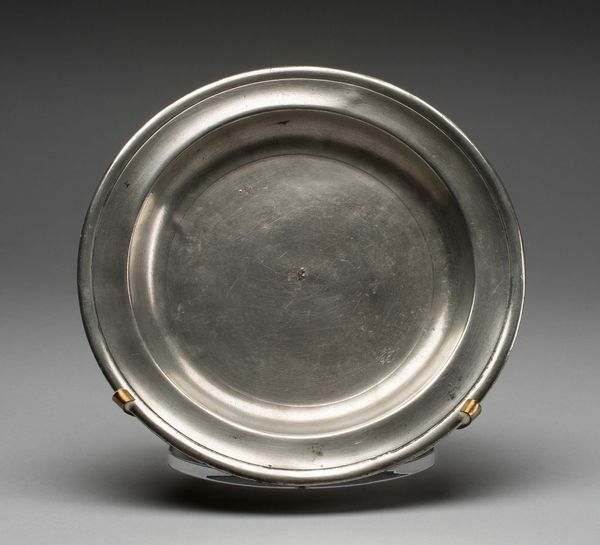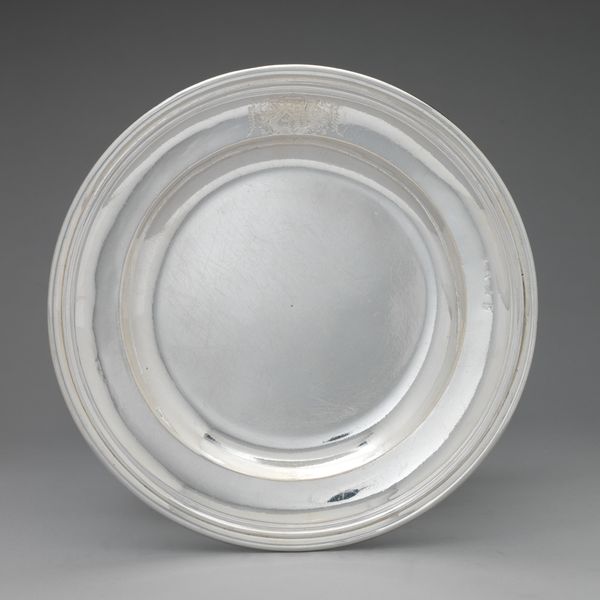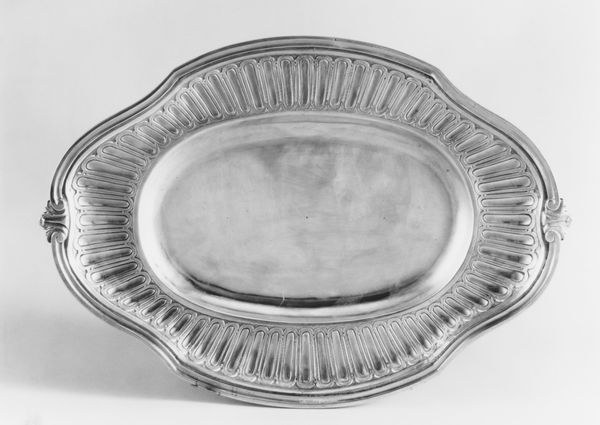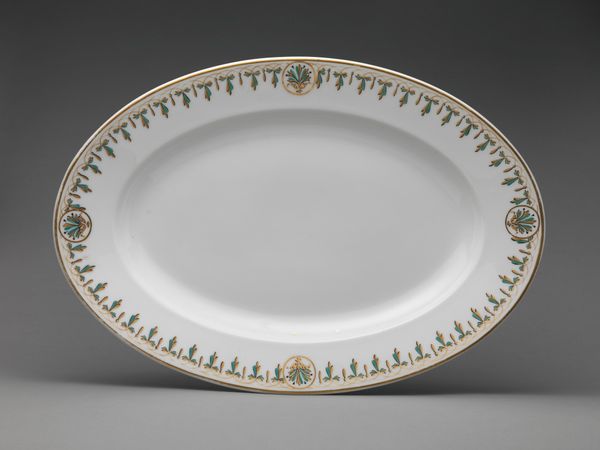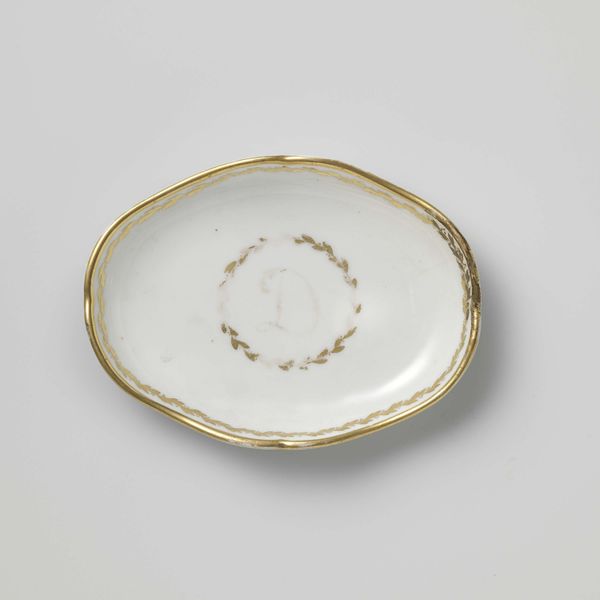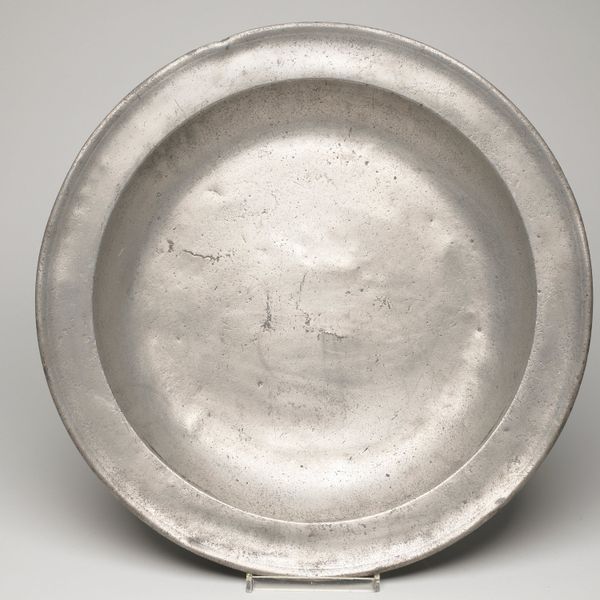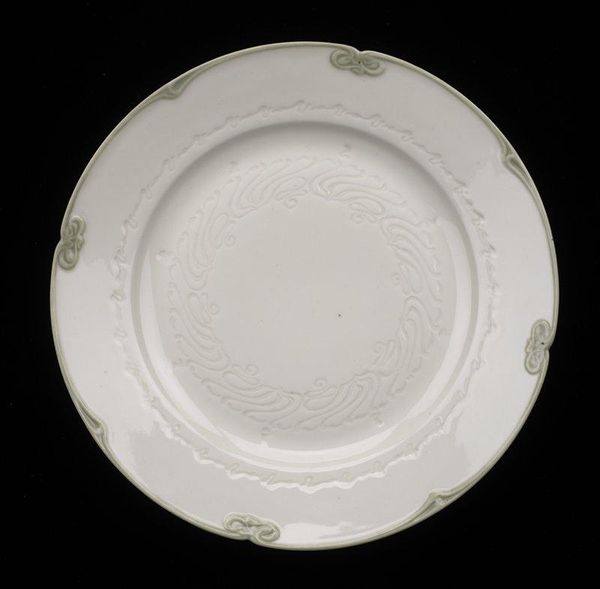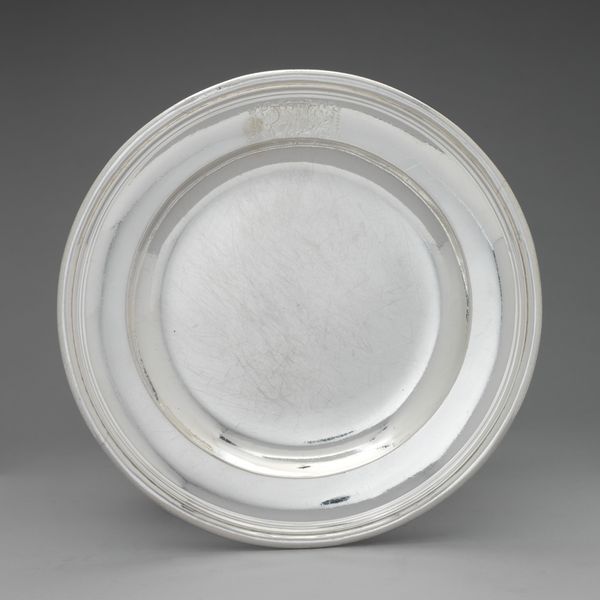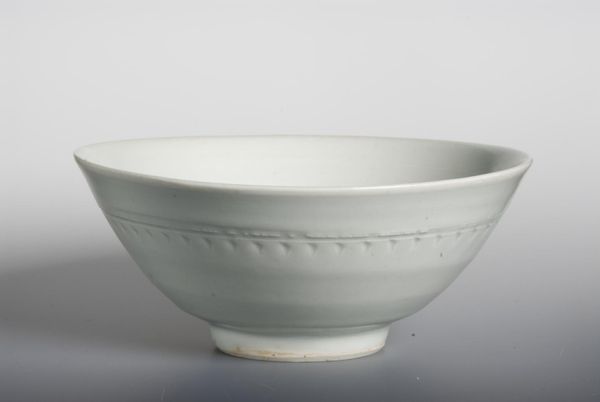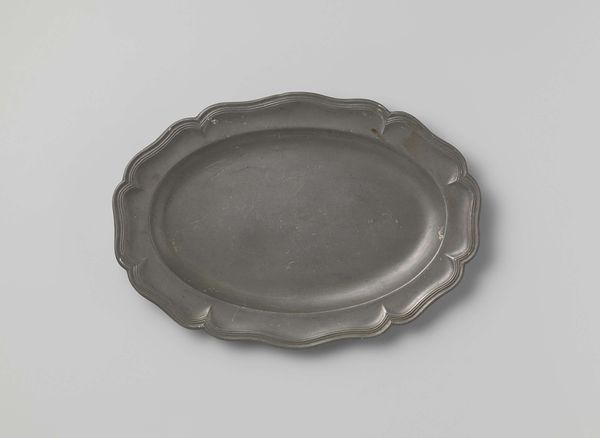
#
circular oval feature
#
3d printed part
#
plastic material rendering
#
virtual 3d design
#
round design
#
retro 'vintage design
#
product design photgrpaphy
#
3d shape
#
metallic object render
#
3d rendered logo
Dimensions: height 19.5 cm, diameter 26.5 cm, cm, weight 1904 gr
Copyright: Rijks Museum: Open Domain
Editor: So, we have before us a circular dish cover from around 1819, crafted by Jean-Baptiste-Claude Odiot. It’s gleaming, silvery surface is remarkably simple, almost minimalist. It makes me wonder how something like this was produced. What speaks to you most about it? Curator: Well, let's consider the material: likely silver or silver plate. Its very presence speaks to a specific mode of consumption, doesn't it? This wasn't just functional; it signified wealth and status in early 19th century France. We can ponder the specific processes to obtain the material and also the labour needed to shape and polish this object. Editor: I suppose it's easy to overlook the labor. What about that decorative trim around the edge? Curator: Exactly! Think about the level of skill and labor involved in creating that delicate detail. This highlights a paradox, right? The simplicity you noted actually masks a complex network of production and skill. Was it handmade? Machine assisted? How does that affect its value, both monetary and social? Editor: That’s interesting, because from a distance, you miss all those details! Now I am thinking about the silversmith workshops. The conditions. Curator: Precisely! Who were the people involved in its production? What were their working conditions? Were they guild-trained artisans, or wage laborers? Answering these questions starts to reveal a broader picture of the socio-economic realities of the time. Editor: It shifts my perspective completely. I went from thinking of it as one object, to seeing a network of workers and processes. Curator: Indeed! This seemingly simple dish cover becomes a window into the material conditions of its creation, inviting us to examine not just its beauty but also the social and economic relations that shaped its very existence.
Comments
No comments
Be the first to comment and join the conversation on the ultimate creative platform.
